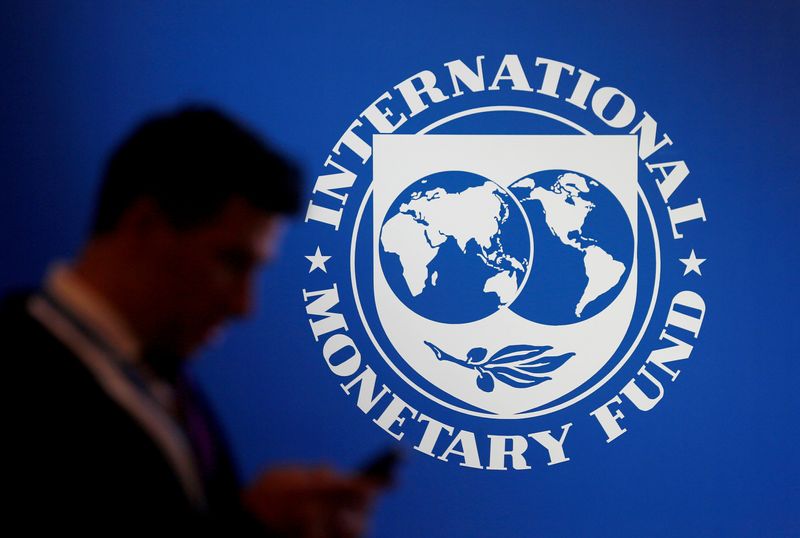By Anait Miridzhanian
ABUJA (Reuters) -The International Monetary Fund has revised Nigeria's 2022 real GDP growth forecast down to 3% from 3.4% earlier, citing weak oil production and the adverse effects of recent flooding.
Nigeria is currently battling to halt crude theft and insecurity in its oil producing regions which has slashed oil output and government revenues.
The country is also trying to stabilise its ailing currency, curb surging inflation and boost growth.
"Output growth is expected to moderate in 2022 to 3% and improve slightly next year," the IMF said in a statement.
In June, the IMF said Nigeria's real GDP growth was broadening to all sectors except oil but inflation remains elevated. It added that the economic outlook for Africa's most populous nation and top oil producer was challenging, with high food prices raising food security concern.
The IMF said double-digit inflation in Nigeria is expected to moderate at end-2022 as the start of the harvest season more than counters the projected increase in rice prices caused by recent flooding.
The Fund added that monetary conditions were accommodative despite tightening measures undertaken by the central bank as interest rate was still below inflation at 21.09% in October.

Nigeria's central bank will meet on Tuesday to announce the decision of its rates setting meeting where few analyst expect the bank to keep rates on hold at 15.5%.
"Continued FX shortages, a stabilized exchange rate regime, rising inflation, limited debt servicing capacity, and administrative restrictions on current transactions fuel devaluation speculations," the IMF said.